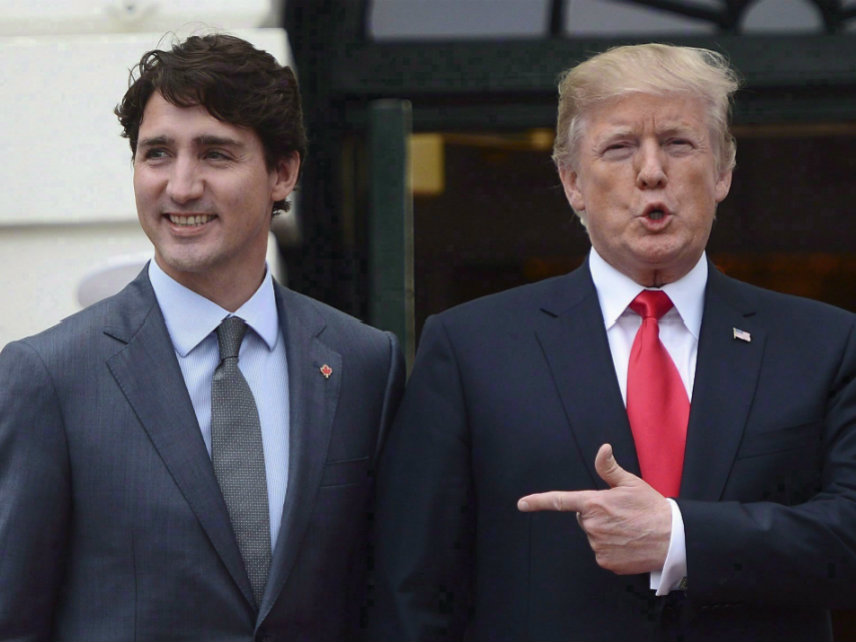As Canada, Mexico, and the E.U. Respond to Trump's Tariffs, Actions Speak Louder Than Words
Justin Trudeau and others condemn Trump's protectionist tactics, then respond with protectionism of their own.

Within hours of President Donald Trump's declaration last week that the United States will begin imposing steel and aluminum tariffs on Canada, Mexico, and the European Union, leaders of those countries offered sharp criticisms of Trump's protectionism and defended the importance of free trade.
Those remarks stand in sharp contrast to the actions those same leaders have taken in response to Trump's tariffs.
"The government of Canada is confident that shared values, geography and common interests will ultimately overcome protectionism," Canadian Prime Minister Justin Trudeau proclaimed. Then he took steps to impose a 25 percent tariff on American steel and a 10 percent tariff on several other American goods, including maple syrup, whiskey, and various aluminum products, effective July 1.
The Mexican government's statement was equally high-minded: "Mexico reiterates its position against protectionist measures that affect and distort international commerce in goods." Its actions, meanwhile, were equally irreconcilable with that anti-protectionist rhetoric: It announced new tariffs on American steel and various food items, including pork and bourbon.
The European Union—whose foreign policy chief, Federica Mogherini, promised "no protectionism" back in March—now promising $7.5 billion's worth of tariffs on various American goods beginning June 20.
Trump could damage the American economy by leading the country into a trade war with some of its top allies and trading partners, but those other countries' responses are self-destructive too. America may be shielding itself from greater competition and lower consumer prices, but that doesn't mean that the E.U., Canada, and Mexico should do the same.
Free trade is beneficial even when it's unilateral, points out Veronique de Rugy, a senior research fellow at the Mercatus Center (and a Reason columnist).
"The only argument for retaliation is to remind the world that trade wars are neither painless nor easy to win, but it is going to be a high price to pay," she says. "The thing that people don't seem to understand is that, based on the studies out there, when you retaliate, you take a policy measure that hurts your own people, with no exceptions." Through their retaliation, these governments are forcing their citizens to pay higher prices for the same goods and services. They'd be better off if they abandoned the absurd games of tit-for-tat that have long dominated trade policy, and instead embraced the prosperity that comes from genuinely open trade over national frontiers.

Show Comments (19)